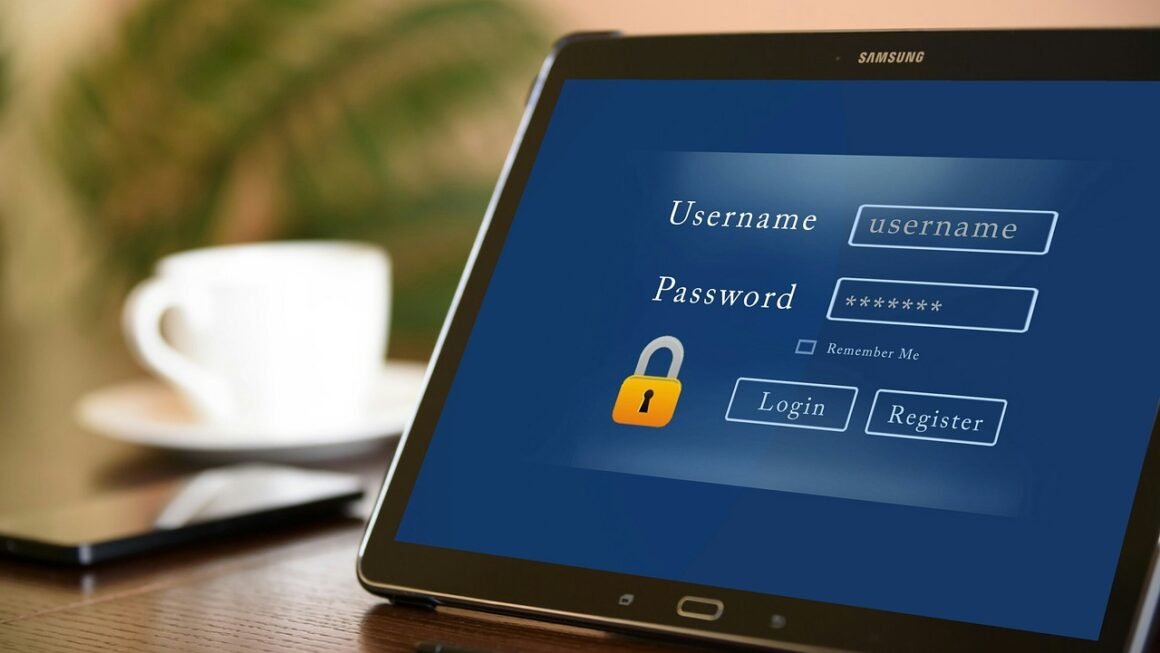In today’s interconnected world, online privacy and security are more crucial than ever. Whether you’re browsing from a coffee shop, accessing sensitive data for work, or simply trying to stream your favorite shows without geo-restrictions, a Virtual Private Network (VPN) can be your best friend. But what exactly is a VPN, and why should you consider using one? Let’s dive into the world of VPNs and explore how they can enhance your online experience.
What is a VPN and How Does it Work?
Definition and Basic Functionality
A Virtual Private Network (VPN) creates a secure, encrypted connection over a less secure network. Think of it as a private tunnel for your internet traffic. When you connect to a VPN, your data is routed through a VPN server, masking your IP address and encrypting your data.
Encryption Explained
Encryption is the process of converting readable data into an unreadable format, called ciphertext. Only someone with the correct decryption key (the VPN server in this case) can turn it back into readable data. Common encryption protocols include:
- AES (Advanced Encryption Standard): Widely considered the gold standard, offering strong protection.
- OpenVPN: An open-source protocol, known for its security and reliability.
- IKEv2/IPsec: Another secure protocol, often used for mobile devices due to its stability.
- WireGuard: A relatively new protocol that’s gaining popularity for its speed and security.
Without encryption, your data is vulnerable to eavesdropping, especially on public Wi-Fi networks. VPN encryption ensures that even if someone intercepts your data, they won’t be able to understand it.
IP Address Masking
Your IP address is a unique identifier that reveals your approximate location and internet service provider. A VPN hides your real IP address by routing your traffic through its server, making it appear as if you are browsing from the VPN server’s location. For example, if you are in London and connect to a VPN server in New York, websites will see your IP address as originating from New York.
Why Use a VPN? Common Use Cases
Enhancing Online Security on Public Wi-Fi
Public Wi-Fi networks, like those in coffee shops or airports, are notoriously insecure. Hackers can easily intercept data transmitted over these networks. A VPN provides a secure, encrypted connection, protecting your passwords, credit card details, and other sensitive information from being compromised. Always enable your VPN before connecting to public Wi-Fi.
Example: Imagine you’re checking your bank account on a public Wi-Fi. Without a VPN, a hacker could potentially intercept your login credentials. With a VPN, your data is encrypted, making it virtually impossible for them to steal your information.
Accessing Geo-Restricted Content
Many streaming services, websites, and games have content that is only available in certain regions. A VPN allows you to bypass these geo-restrictions by connecting to a server in a different country. This makes it appear as if you are browsing from that location, granting you access to the content.
Example: If you are traveling abroad and want to watch a TV show that is only available on Netflix in the US, you can connect to a US-based VPN server.
Protecting Your Privacy from ISP Tracking
Your Internet Service Provider (ISP) can track your browsing activity and potentially sell this data to advertisers. While regulations vary, using a VPN can prevent your ISP from monitoring your online behavior. The VPN encrypts your traffic, so your ISP only sees that you are connecting to a VPN server, not the websites you are visiting.
Bypassing Censorship
In some countries, access to certain websites and services is restricted or censored. A VPN can bypass these restrictions by routing your traffic through a server in a country where the content is not blocked. This allows users to access information and communicate freely.
Choosing the Right VPN: Key Considerations
Security Protocols and Encryption Standards
Ensure that the VPN provider uses strong encryption protocols, such as AES-256, and secure protocols like OpenVPN, IKEv2/IPsec, or WireGuard. Avoid VPNs that use outdated or weak protocols like PPTP, as they are vulnerable to security breaches.
No-Logs Policy
A “no-logs” policy means that the VPN provider does not track or store any information about your browsing activity, IP address, connection timestamps, or bandwidth usage. Review the VPN’s privacy policy carefully to ensure that it has a clear and verifiable no-logs policy. Some VPN providers undergo independent audits to verify their no-logs claims.
Server Locations and Speed
Choose a VPN with a wide range of server locations to access content from different regions and ensure optimal speed. The closer the VPN server is to your actual location, the faster your connection speed will likely be. Consider a VPN with servers optimized for streaming or gaming, which typically offer higher bandwidth and lower latency.
Device Compatibility
Ensure the VPN is compatible with all the devices you plan to use it on, including computers, smartphones, tablets, and routers. Many VPN providers offer dedicated apps for different operating systems, such as Windows, macOS, iOS, and Android.
Pricing and Customer Support
VPN pricing varies widely, from free options to premium subscriptions. Free VPNs often have limitations on bandwidth, server locations, and speed, and some may even collect and sell your data. Paid VPNs typically offer better performance, more features, and stronger security. Also, assess the availability and quality of customer support, including live chat, email, and knowledge base articles.
Setting Up and Using a VPN
Installation and Configuration
Most VPN providers offer user-friendly apps that make it easy to install and configure the VPN. Simply download the app from the provider’s website or app store, install it on your device, and log in with your account credentials. Once logged in, you can select a server location and connect to the VPN with a single click.
Tip: Explore the app’s settings to customize your VPN connection. You may be able to choose a specific protocol, enable a kill switch, or configure split tunneling.
Kill Switch Feature
A kill switch is a crucial security feature that automatically disconnects your internet connection if the VPN connection drops. This prevents your data from being exposed if the VPN fails unexpectedly. Ensure that the VPN you choose has a reliable kill switch and that it is enabled in the app’s settings.
Split Tunneling
Split tunneling allows you to choose which apps or websites use the VPN connection and which use your regular internet connection. This can be useful for improving performance and accessing local services while still protecting your privacy. For example, you might want to route your streaming traffic through the VPN while allowing your online banking to use your regular connection for security reasons.
Testing Your VPN Connection
After connecting to the VPN, verify that your IP address has been changed and that your connection is secure. You can use online tools like “WhatIsMyIPAddress” or “IPLocation” to check your IP address. Also, test your VPN connection by browsing websites that you know are geo-restricted to ensure that you can access them. It’s recommended to perform regular checks to ensure that the VPN is working as expected.
Conclusion
VPNs are powerful tools for enhancing your online privacy and security. By encrypting your data, masking your IP address, and allowing you to bypass geo-restrictions, VPNs offer numerous benefits in today’s digital landscape. Whether you’re concerned about protecting your data on public Wi-Fi, accessing geo-restricted content, or preventing ISP tracking, a VPN can provide a valuable layer of protection. When choosing a VPN, consider factors like security protocols, no-logs policy, server locations, and device compatibility to find the best option for your needs. With the right VPN in place, you can enjoy a safer, more private, and more unrestricted online experience.



